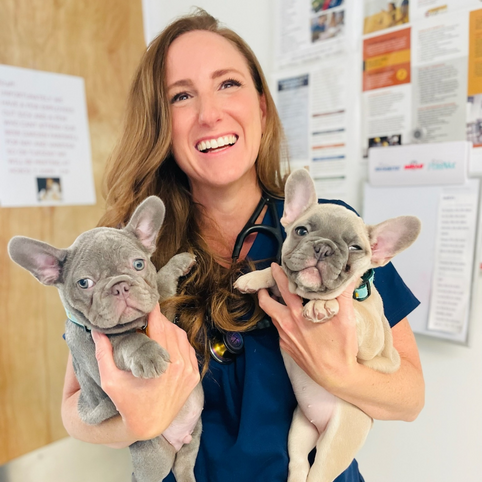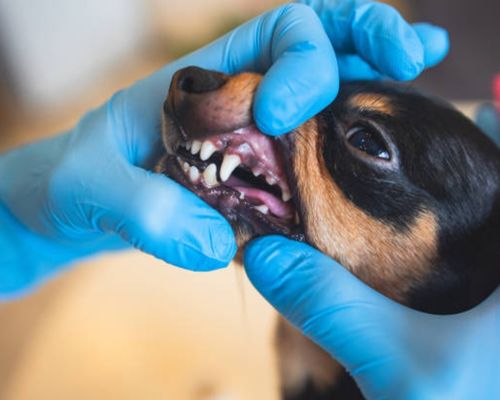Pet Dental
The general health and wellbeing of your pet includes their dental health.

Cat and Dog Teeth Cleaning in Key Largo, FL
Most dogs and cats are well on their way to developing periodontitis by age 2 because they don’t receive proper dental care at home or from their veterinarian. With regular at-home treatment and routine dental visits to our animal hospital in Key Largo, dogs and cats can completely avoid the uncomfortable, potentially life-limiting effects of oral and dental diseases. Your pet’s oral health is intrinsically tied to their overall health—by taking care of one, you’re also taking care of the other.
Make an appointment so we can assess your pet’s oral health and provide key treatment recommendations.
What are the Signs of Oral/Dental Disease in Dogs and Cats?
While there are often no obvious symptoms that your pet has an oral disease, there are several common signs that could indicate a problem:
- Bad breath
- Teeth that are discolored, loose, or covered in plaque and tartar
- Your pet moves away when you try to touch their mouth
- Bleeding from the mouth
- Drooling
- Dropping food
- Obvious pain or discomfort
- Change in eating habits or weight loss

How Does this Affect My Pet?
Oral and dental diseases in dogs and cats will inevitably grow more severe without treatment. A clean mouth is not the only thing at stake! Some of the major risks pets face include:
- Constant oral pain that can affect their quality of life
- Trouble eating and maintaining a healthy weight
- Tooth loss
- Chronic bacterial infection that gradually destroys the teeth, gums, and underlying bone
- Chronic bacterial infection within the mouth that can eventually enter the bloodstream and spread throughout the whole body
- Heart and kidney disease caused by the spread of infection
Maintaining Your Pet’s Oral Health
We offer a full range of teeth cleaning services for cats and dogs to treat various oral diseases and maintain the health of your pet’s teeth and gums.

Taking Care of Your Pet’s Teeth at Home
Home dental care is extremely important. When you first bring home your new puppy or kitten, you should start getting them used to teeth brushing as soon as possible. Brushing is one of the best ways to slow the buildup of plaque and tartar. Learn how to brush your pet’s teeth here!
For other teeth cleaning recommendations (especially if your pet is resistant to brushing), be sure to contact our hospital at (305) 852-5252.
Will My Pet be Safe During Their Teeth Cleaning Procedure?
Our veterinarians and technicians work hard to make every cat and dog teeth cleaning procedure as safe as possible. We use general anesthesia to ensure safety for your pet and thoroughness on the part of our team. All pets are constantly monitored for cardiovascular and respiratory functions by a veterinarian. After their dental procedure, they’ll be moved to our recovery area and continue to be monitored until they are fully awake. A pre-anesthetic blood panel to see if your pet has an underlying health problem that could put them at risk, IV fluids to keep your pet hydrated during their teeth cleaning, and post-operative pain relief medication are required for all of our dentals as safety measures.
For greater safety, we may also recommend:
- Anti-nausea and anti-anxiety meds to give at home prior to the procedure
- Chest X-rays to look for abnormalities of the heart and lungs
- A full cardiac workup by a veterinary cardiologist
Veterinary Services
Below are all of the veterinary services we offer at Island Hammock Pet Hospital. If you have any questions regarding our services, please feel free to call us.
